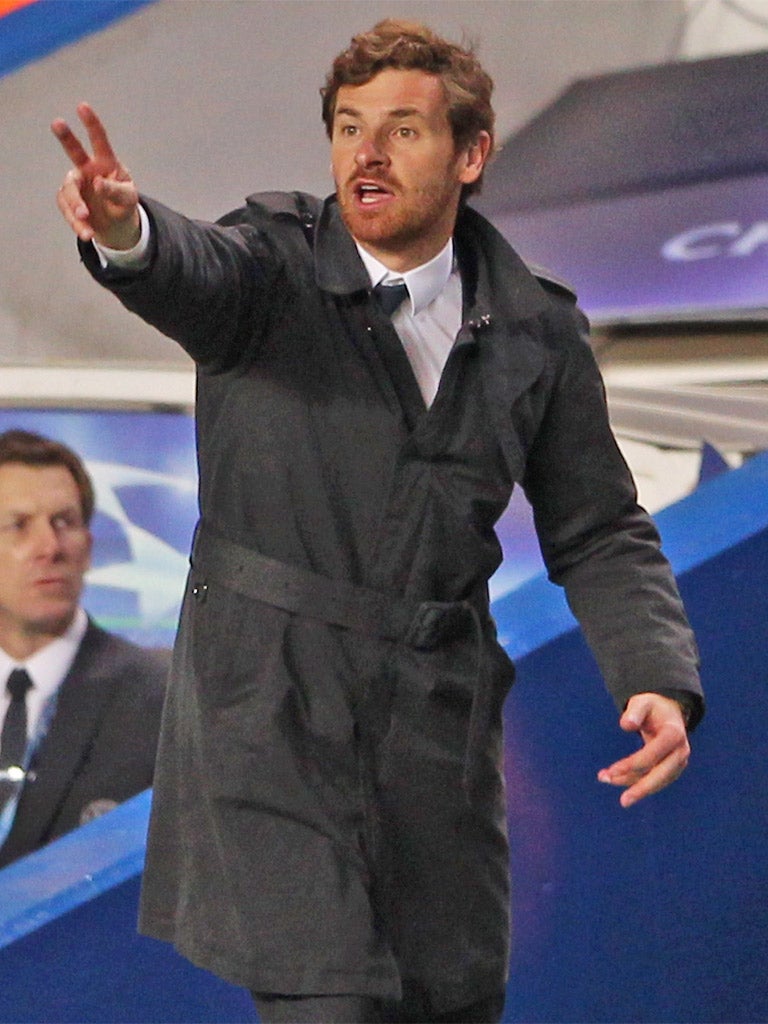Villas-Boas uses Mourinho template to ensure progress

At last, Andre Villas-Boas's tomorrow has come. The Chelsea manager did not wish to discuss what comes next before the visit of Valencia, the first truly pivotal moment in his nascent British career at the elite level. "We cannot speak about that," the 34-year-old said, when asked what might happen in the event of failure in Europe. The future was another country, alien, stark. Comfort lay in the past.
It is not a subject the 34-year-old enjoys. After all, this is a place where time is accelerated, by the Embankment, where crisis rises with the tide, by the King's Road, where philosophies are as fleeting as fashion. Last year seems a lifetime ago. And yet, for once, it was in his history book that the Portuguese looked for inspiration.
"I have good memories of top European nights at this club," he said. "I know the atmosphere can be raised here, just like in the 4-2 against Barcelona."
The appeal to the fans, of course, is the manager's last resort, ordinarily employed only as a measure of desperation. It is, in truth, most unlike Villas-Boas. He admits himself that he is fascinated by the "emotional state", but only of his players; he is not one for rallying cries or calls to arms; he is more sophist than demagogue.
And yet here he felt compelled not only to indulge his base instincts for rhetoric, but to cite a history he eschews obsessively: the time of Mourinho.
Perhaps that is because, in mentioning that portion of his career, he offers a reminder of his once lowly status. The pauper who became the prince does not wish to advertise his elevation. Perhaps it is linked to the breakdown in relations with his former mentor. Perhaps he simply wishes to forge his own path, to free himself from the immaculately tailored shadow which inhabits his club.
Villas-Boas, though, was clearly prepared to do anything to secure his future, that of his revolution, the propagation of that selfish gene, his philosophy. It will be the last thing to die, he has repeated, again and again. He neglected to mention that it might be allowed to rest. Not content with raising Mourinho's ghost before the game, Villas-Boas went a step further: he invoked him on the pitch, too.
Make no mistake, this was a Special One special. A compact, narrow defence, programmed to close space, to asphyxiate their opponents. The line was not high, but in what Villas-Boas refers to as the "middle block". Valencia were permitted to weave their patterns in front of David Luiz and John Terry. Oriol Romeu occupied Claude Makelele's eponymous role, tasked with shielding his line. Valencia might pass, pass, pass, but there would be no way through.
And then, when possession was eventually recovered, the quick break, building off the imperious Didier Drogba – the Ivorian, too, harking back to a halcyon age – through Juan Mata and Daniel Sturridge, both drawn inside to support the totem ahead. It was the Mourinho blueprint, carried out to perfection by his old foot soldiers.
Except, of course, Frank Lampard, relegated to the bench. A reminder, a warning: Villas-Boas may have looked to the past to secure his future, but what comes next is entirely up to him. He has survived this first phase of his reign, leapt this first hurdle. Now the revolution must be sustained. Alex and Nicolas Anelka will be allowed to leave, others will follow. Tomorrow has arrived. It is time to forget Chelsea's yesterdays. This was one last appeal to the spectre in the overcoat. Villas-Boas remains intent on vanquishing him.
Subscribe to Independent Premium to bookmark this article
Want to bookmark your favourite articles and stories to read or reference later? Start your Independent Premium subscription today.

Join our commenting forum
Join thought-provoking conversations, follow other Independent readers and see their replies